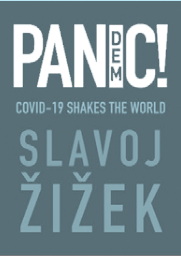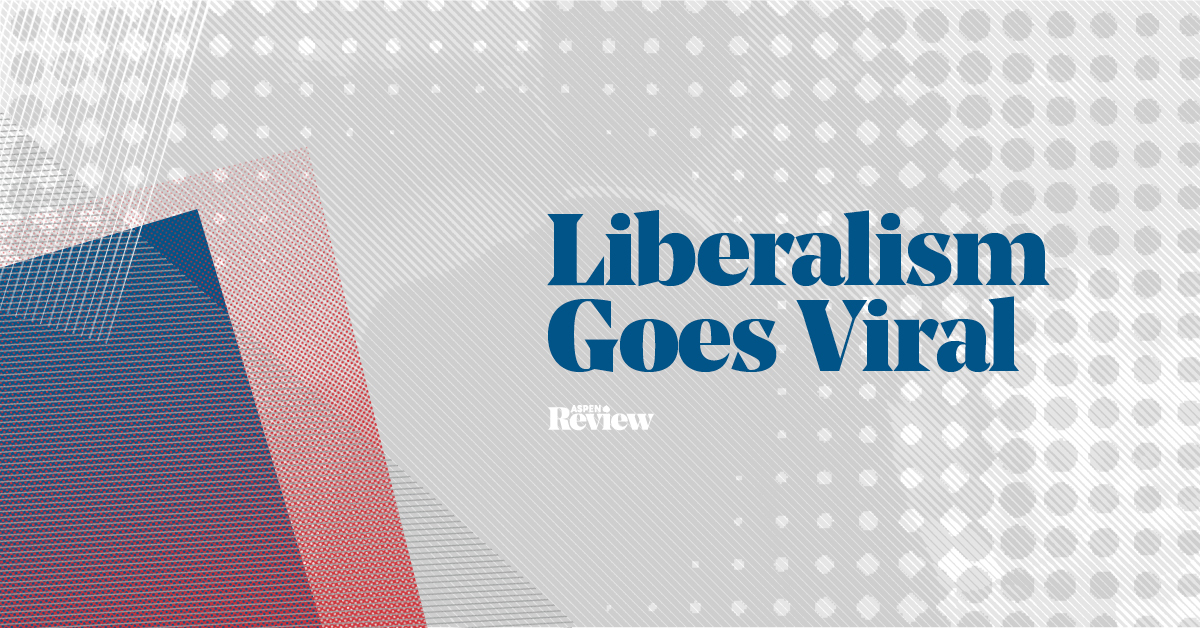 Pandemic!: COVID-19 Shakes the World Slavoj Žižek Polity Press, 136 pp, 2020
Pandemic!: COVID-19 Shakes the World Slavoj Žižek Polity Press, 136 pp, 2020
Sadly, pandemics are nothing new. In his 1975 book “Discipline and Punish”, the French philosopher Michel Foucault used anecdotes from seventeenth-century French military archives in a lengthy discussion of how local governments reacted to the plague. Step one saw each town cut itself off from the outside world—nobody in, nobody out. Towns were then divided into neighborhoods. Each neighborhood was placed in the charge of an intendant, and each street had a syndic—a guard that made sure nobody left their home. Bread and wine were delivered to special boxes on the doorsteps.
Along with enforcing the quarantine, syndics would visit every house on their street once per day to take a roll call. Each resident was required to show themselves at the window to prove they were still alive. After five or so days of quarantine, the town authorities began decontaminating homes. People were ordered outside—one house at a time. Officials sealed the doors and windows with wax, pumped the house full of ‘perfume’ and then set the gas alight to disinfect the interior. After that, people returned to their home.
Daily stress comes not so much from fear of death, but from worrying about the next time they might be able to visit a restaurant or go to the beach.
“The plague is met by order; its function is to sort out every possible confusion, that of the disease, which is transmitted when bodies are mixed together; that of the evil, which is increased when fear and death overcome prohibitions,” Foucault writes. “The plague (envisaged as a possibility at least) is the trial in the course of which one may define ideally the exercise of disciplinary power.”
Then, as now, success in combating a pandemic was proportional to the government’s competence, it’s ability to maintain social cohesion and the public’s willpower. Failure signified the opposite. The French archives called the people whose job it was to deal with the sick ‘crows’. They were characterized as “people of little substance who carry the sick, bury the dead, clean and do many vile and abject offices.” In the twenty-first century, we call these same people—grocery store clerks, garbage collectors, janitors and truck drivers—‘essential workers’. They have the lowest-paid jobs but continued to work while the rest of us were locked away at home. Even nurses, the most respected profession in the United States in straight years of Gallup polls and in high demand everywhere, struggle with mediocre if not meager salaries.
“What is wrong with our system that we were caught unprepared by the catastrophe despite scientists warning us about it for years?” Slavoj Žižek wonders in his latest book, “Pandemic!”
All Kinds of Social Dissonance
If it was not obvious before, it turns out, quite a lot, and the crisis has exposed all kinds of social dissonance that we were happy to ignore before. While people voluntarily submit to mobile phone surveillance from companies who want to sell them stuff, why won’t they share data to benefit public health? Daily stress comes not so much from fear of death, but from worrying about the next time they might be able to visit a restaurant or go to the beach. And what can we say about a society that prioritizes re-opening pubs over schools? I like beer as much as the next person (probably more), but am plenty willing to drink it on my couch indefinitely if it means my eight-year-old gets to visit with her friends in a classroom.
Žižek has long argued that ideological myopia distracts society from addressing its deepest ills. Rather than attack problems at their root, this means we are satisfied with treating the symptoms.
Žižek’s slim volume feels a lot like a collection of newspaper columns or a book version of a Zoom call (all the sales royalties go to Médecins Sans Frontières). He riffs on current events in more or less real-time, citing Wikipedia, The Daily Mail and The Guardian in footnotes—and responds to many of his philosophical friends’ own contemporaneous takes on the coronavirus. In doing so he revisits many of his favored themes (ideology, hypocrisy and his derision for liberalism) and mannerisms (praising pal Julian Assange, references to film and pop culture and the odd venture into bathroom humor).
Žižek is not interested in the particular failings by governments in responding to the COVID-19 outbreak. “The point is to reflect on the sad fact that we need a catastrophe to be able to rethink the very basic features of the society in which we live,” he writes. He sees COVID-19 as having exposed weaknesses that were already there.
“I know there is enough toilet paper and the rumor is false, but what if some people take this rumor seriously and, in a panic, start to buy excessive reserves of toilet paper, causing an actual shortage?”, he writes in a typically Žižekian passage. “It is not even necessary to believe that some others take the rumor seriously—it is enough to presuppose that some others believe there are people who take the rumor seriously—the effect is the same, namely the real lack of toilet paper in the stores.” Going one step further he argues that the toilet tissue panic is an attempt to trivialize COVID-19, writing: “Just think how ridiculous is the notion that having enough toilet paper would matter in the midst of a deadly epidemic”.
In a Crisis, We Are All Socialists
Across 11 chapters, plus an introduction and appendix, Žižek reframes familiar social criticisms in the context of the coronavirus. As ever, his primary target is an ideology—the systems of ideas that many of us tend to accept as fact, or what Antonio Gramsci called the “folklore of philosophy.” Among Žižek’s targets is what he calls “capitalist animism”—the idea that financial markets are some kind of natural phenomenon, even living, breathing entities. “If one reads our big media, the impression one gets is that what we should really worry about are not the thousands who have already died and the many more who will, but the fact that ‘markets are panicking,’” he writes.
Žižek points to the absurdity of Donald Trump, a cartoonish incarnation of a capitalist, spending trillions of government dollars “violating all conventional market rules,” offering stimulus checks to every American taxpayer in a scheme that comes close to resembling a universal basic income. In July, well after Žižek wrote his book, the conservative UK government announced a £2 billion state-funded jobs scheme targeting people under age 25—not exactly the foundation of traditional Tory policies. “As the saying goes: in a crisis we are all Socialists,” Žižek writes.
Žižek has long argued that ideological myopia distracts society from addressing its deepest ills. Rather than attack problems at their root, this means we are satisfied with treating the symptoms. “The problem is the same as the journalism dealing with the environmental crisis: the media overemphasize our personal responsibility for the problem, demanding that we pay more attention to recycling and other behavioural issues,” he writes. “Such a focus on individual responsibility, necessary as it is to some degree, functions as an ideology the moment it serves to obfuscate the bigger questions of how to change our entire economic and social system.”
A Tension Between Individual Freedom and Objective Mechanisms
As a remedy he insists society move toward what he calls—for shock value ‘communism’.
“Not only should the state assume a much more active role, organizing the production of urgently needed things like masks, test kits and respirators, sequestering hotels and other resorts, guaranteeing the minimum of survival of all new unemployed, and so all, doing all of this by abandoning market mechanisms,” he writes. “Two other things are clear. The institutional health system will have to rely on the help of local communities for taking care of the weak and old. And, at the opposite end of the scale, some kind of effective international cooperation will have to be organized to produce and share resources.” He does not advocate a return to Soviet-style governance, but insists communism is a “name for what is already going on,” and that the only alternative to this is a “new barbarism”.
In general, Žižek revels in attacking liberal elites and their disproportionate emphasis on individual agency, but he avoids what seems like an obvious line of attack in this book. “There is in liberalism, from its very inception, a tension between individual freedom and objective mechanisms which regulate the behavior of a crowd,” he has written elsewhere.
On this Žižek is right. Discussion over this tenuous balance between individual and collective rights goes back many centuries, preoccupying Plato, Aristotle and Immanuel Kant, among others. One of the twentieth century’s leading liberal thinkers, Isaiah Berlin, famously differentiated between negative and positive liberty. Others refer to the two concepts as ‘freedom from’ and ‘freedom to’.
In short, individual freedom ends where it starts to impede on other people’s freedom. Speed limits on the road restrict my freedom to drive as fast as I want, but we view that as a reasonable trade-off that allows others the freedom to cross the street without being hit by a car. While acknowledging that society must strike a balance between positive and negative liberty when the two collide a liberal like Berlin prioritizes positive liberty—the freedom to do what you want.
In short, individual freedom ends where it starts to impede on other people’s freedom. Speed limits on the road restrict my freedom to drive as fast as I want, but we view that as a reasonable trade.
Authoritarianism Itself is no Coronavirus Cure
The only problem is that positive liberty has come to be synonymous with all liberty. Perhaps an understandable overreaction to the horrors of twentieth-century totalitarianism, this strips freedom of meaning. Worse than Gramsci’s folklore, it caricatures liberalism and provides political cover to extreme selfishness. Physical attacks on store clerks who have requested customers wear masks or Brazilian president Jair Bolsonaro’s defiant trip to a hot dog stand exemplify such perversions. So did the gun-wielding nut cases who stormed the capitol in my native state of Michigan insisting they had a God-given right to water ski in 8°C weather while the apocalypse was underway. Extreme as these examples are, they are indicative of a social breakdown that predated the coronavirus crisis. As Foucault wrote “the image of the plague stands for all forms of confusion and disorder”.
China stopped the spread of COVID-19 using draconian methods, but Russia’s inept response proves that authoritarianism is itself no coronavirus cure. Less liberal democracies, like South Korea, succeeded in beating back the pandemic, but so did Denmark and the Czech Republic. At minimum, it is possible to say that the countries that were most successful in coping with COVID-19 saw people collectively sacrifice—either voluntarily or through compulsion—for the common good. In other words, they embraced negative liberty and thus rejected classical liberalism. It is hard to imagine we will not need more of this in the months ahead.
“Not to shake hands and isolate IS today’s form of solidarity,” Žižek writes.


